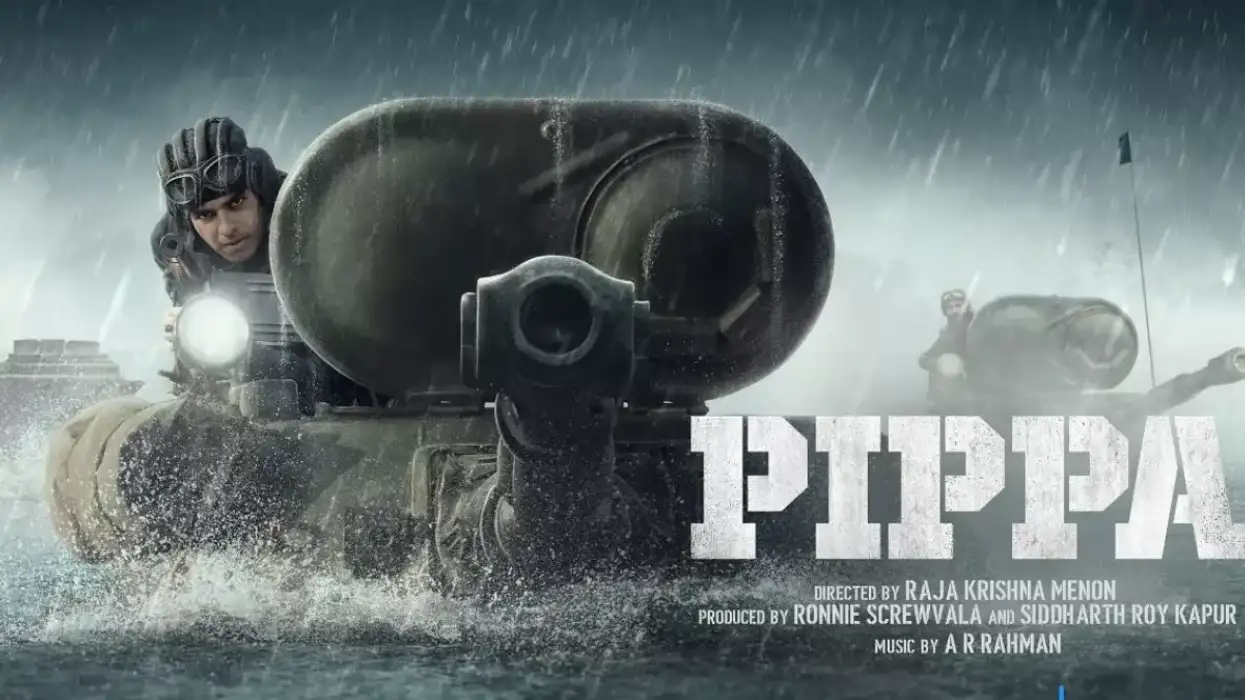The new rendition of "Karar oi louho kopat" in Pippa is a sincere artistic interpretation and done after securing necessary adaptation rights, the film's team said on Monday, days after AR Rahman's version of the beloved Kazi Nazrul Islam poem attracted controversy for its alleged "distortion".
The poet's grandson and painter Kazi Anirban claimed that the family had given the makers permission to use the song but not to change the tunes and rhythm.
In a statement, the team behind Pippa, produced by RSVP and Roy Kapur Films, said they have "deep respect" for the original composition, Islam, and his immeasurable contribution to the "musical, political and social landscape of the Indian subcontinent". The album, they said, was created as a tribute to those behind the liberation of Bangladesh.
"In light of the current discourse surrounding the song 'Karar Oi Louho Kopat' the producers, director, and music composer of the film Pippa wish to clarify that our rendition of the song is a sincere artistic interpretation, embarked upon only after securing the necessary adaptation rights from the estate of the Late Mr. Kazi Nazrul Islam," the statement read.
The film, starring Ishaan Khatter and Mrunal Thakur, is set during the 1971 India-Pakistan war and is directed by Raja Krishna Menon.
"We approached the making of this song by faithfully following both the letter and the spirit of the license agreement for the lyrics, as duly signed with Late Mrs. Kalyani Kazi and witnessed by Mr. Anirban Kazi. Our intent was to pay homage to the cultural significance of the song while adhering to the terms set forth in our agreement, which permitted us to use the lyrics with a new composition," it added. Islam, popularly known as the 'rebel poet', was born in 1899 in present-day West Bengal's Paschim Bardhaman district. His songs, known as 'Nazrul geeti', are probably second in terms of popularity after those of Rabindranath Tagore in Bengal. He later became the national poet of Bangladesh. Islam died in 1976.
The makers said while all art is subjective, they apologise if their version hurt the sentiments.
"We understand the emotional attachment that audiences may have to the original composition, and while all art is inherently subjective, if our interpretation has hurt sentiments or caused unintended distress, we offer our sincere apologies,".
The poem's new iteration by Rahman has angered not just the family of the poet but also the artistic community in West Bengal and Bangladesh.
Islam's grandson Kazi Anirban, granddaughter Anindita Kazi, popular Bengali singer Haimanti Shukla, and Khilkhil Kazi, another granddaughter of the poet living in Bangladesh, have slammed the filmmakers for "distorting" the poet's creation, which they say is outrageous.
The song was first published in 'Banglar Katha' (Stories of Bengal) magazine in 1922 and included in Islam's book of poems 'Bhangar Gaan' (Songs of breaking free). It was first recorded in 1949 by a famous label and then in 1952 by another record label.
Rahman is yet to comment on the issue.




